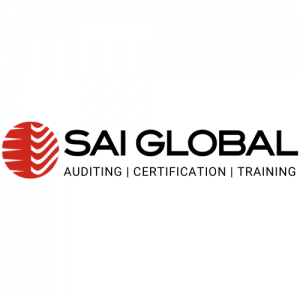Product recalls, customer complaints and negative reviews can severely damage a brand’s revenue and sales.
By SAI Global Technical Manager Australia & South East Asia Saeid Nikdel.
There have already been more than 300 product recalls in Australia this year (ACCC, Recalls, 2021), and most recalls are usually a result of non-conformance with product statutory and regulatory requirements – such as correct labelling – which can present a safety risk.
SAI Global – a trusted global leader in compliance and risk management solutions through its standards, assurance and training offerings – urges brands, manufacturers and all relevant businesses in the supply chain to improve their quality processes and minimise recalls and complaints through a robust ISO 9001 quality management system. ACCC research suggests only about half of buyers return the products to retailers and Australia sees around two fatalities every day as a result of unsafe consumer products (ACCC, October 2019).
Australian businesses along the supply chain, particularly manufacturers of medical, food and essential products, in particular, can minimise recalls through a quality management system, which guides their actions to investigate and analyse the defects, improve quality, prevent defects and reduce supply chain variation.
The success of an organisation depends on the quality of its products and services.
Quality drives customer satisfaction and loyalty, and helps businesses gain a positive reputation and an advantage over competitors. Increasingly, consumers are seeking out the opinions and reviews of other customers before committing to buying goods and services, increasing the importance of quality assurance for manufacturers, brands and retailers.
Safer products mean minimal incident risks or product recalls which, in turn, increases customer satisfaction. The ISO 9001 quality management system ensures products meet statutory and regulatory requirements.
Businesses found liable for supplying products that do not adhere to Australian standards or for making false claims about their products can be fined up to $500,000 for individuals and $10,000,000 for a body corporate (ACCC, Product Safety). If a business is found to be manufacturing and selling non-compliant or unsafe products, it will be required to recall those products and reimburse customers, too – and the reputational damage after such a product recall can be hard to recover from.
On a business level, the management system could help to improve a brand’s reputation. On an operational level, it guides the business to proactively investigate and identity the root causes of any quality problems and immediately implement corrective actions to prevent recurrences and reduce recall risks in future.
According to SAI Global, organisations serious about quality need to consider the processes required to develop a high-quality product or service as well as the various factors that can impact quality. This means it’s wise to implement not just a quality management system but an integrated management system that acts holistically to ensure all parts of the business are functioning to a high standard, from health and safety to information security and environmental responsibility as well as quality.
An integrated management system isn’t just about risk management. It affects all aspects of a business function and helps businesses gain insights, streamline processes, determine the need for new products, develop them and bring them to market, reduce waste, introduce new technologies to increase efficiencies, and identify prospective customers.
Standards are important tools that help Australian businesses to operate safely, legally and productively. Increasingly, businesses are choosing to ensure their own compliance with Australian standards to garner greater trust with consumers. In November 2020, Amazon signed a voluntary new e-product safety pledge launched by the ACCC (ACCC, E-commerce businesses pledge to strengthen product safety online). Under the pledge, online businesses, especially those that act as intermediaries between multiple sellers, regularly check the Product Safety Australia website for product recalls to ensure they are not selling unsafe products. They also undertake steps to remove any products deemed unsafe within two business days.
The ISO 9001 Quality Management system provides a framework and outlines steps that businesses can follow to improve product quality, such as:
- Determine the inputs – what’s required to implement the planned processes – and the outputs – what customers expect – of the processes.
- Decide the sequence and interaction of processes.
- Determine and implement criteria and methods (including monitoring, measurements and related performance indicators) needed to ensure the effective operation of the processes
- Determine what resources are needed to carry out the decided processes.
- Assign responsibilities for the organisation’s processes. These responsibilities will be established in documented information, including operational policies, job descriptions and documented procedures.
- Address risks and opportunities.
- Evaluate the processes and implement changes as needed.
The benefits for businesses that implement an ISO 9001 Quality Management system:
- Improve the ability to respond to statutory and regulatory issues, such as product nonconformities or product recalls.
- Reduce the overall costs of reworks, materials waste, and machineries and equipment maintenance.
- Reduce downtime and the costs of disruption to operations and project delays.
- Improve product quality and liability, service delivery, and customer satisfaction.
- Improve profitability through process improvement and on assets management.
- Recognition for having achieved an international benchmark.
 About Saied Nikdel
About Saied Nikdel
Saeid Nikdel is a technical manager at SAI Global. He joined the organisation in 2013 and is responsible for auditing quality, occupational health and safety, and environmental management systems across SME and large companies. He has more than 20 years’ experience in risks and compliance and auditing, and an extensive background in developing, implementing and maintaining management systems. Saeid has supported numerous organisations across Australia and South East Asia over his eight years with SAI Global.
About SAI Global
SAI Global is a provider of integrated risk management solutions – a combination of leading certification capabilities, training services and advisory offerings across the entire risk lifecycle. It helps organisations proactively manage risk to build trust with customers and achieve business confidence, growth and sustainability. The company has global reach, with locations across Europe, the Middle East, Africa, the Americas, Asia and the Pacific. For more information, visit saiassurance.com.


